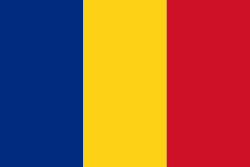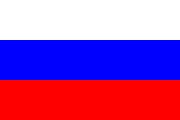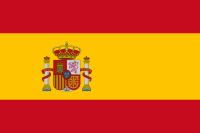Hertha BSC Berlin
| Full name | Hertha Berliner Sport-Club von 1892 e.V. | |||||||||||||||||||||||||||||||||||||||
|---|---|---|---|---|---|---|---|---|---|---|---|---|---|---|---|---|---|---|---|---|---|---|---|---|---|---|---|---|---|---|---|---|---|---|---|---|---|---|---|---|
| Nickname(s) | Die Alte Dame (The Old Lady) The Blue-Whites |
|||||||||||||||||||||||||||||||||||||||
| Founded | July 25, 1892 | |||||||||||||||||||||||||||||||||||||||
| Ground | Olympic Stadium, Berlin (Capacity: 74,500) |
|||||||||||||||||||||||||||||||||||||||
| Chairman | ||||||||||||||||||||||||||||||||||||||||
| Manager | ||||||||||||||||||||||||||||||||||||||||
| League | Bundesliga | |||||||||||||||||||||||||||||||||||||||
| 2007/08 | Bundesliga, 10th | |||||||||||||||||||||||||||||||||||||||
|
||||||||||||||||||||||||||||||||||||||||
Hertha BSC is a German football club based in Berlin. Hertha BSC was a founding club of the DFB (Deutscher Fußball Bund or German Football Association) in Leipzig in 1900.
Contents |
History
Early years
The club was formed in 1892 as BFC Hertha 92, taking its name from a steamship with a blue and white smokestack. One of the four young men who founded the club had taken a day trip on this ship with his father. The name Hertha is a variation on Nerthus referring to fertility goddess from Germanic mythology.
Hertha performed consistently well on the field, including a win in the first Berlin championship final in 1905. However, their on-field success was not matched financially and in 1920 Hertha merged with the well-heeled club Berliner Sport-Club to form Hertha Berliner Sport-Club. The new team continued to enjoy considerable success, while also enduring a substantial measure of frustration. The team played its way to the German championship final in six consecutive seasons from 1926 to 1931, but were only able to come away with the title in 1930 and 1931 with BSC leaving to become an independent club again after the combined side's first championship. Even so, Hertha emerged as the Germany's second most successful team during the inter-war years.
Play under the Third Reich
German football was re-organized under the Third Reich in 1933 into sixteen top-flight divisions, which saw Hertha playing in the Gauliga Berlin-Brandenburg. The club continued to enjoy success within their division, regularly finishing in the upper half of the table and capturing the divisional title in 1935, 1937, and 1944. However, they faded from prominence, unable to advance out of the early rounds of the national championship rounds.
Postwar play in divided Berlin
After World War II, occupying Allied authorities banned most organizations in Germany, including sports and football clubs. Hertha was re-formed late in 1945 as SG Gesundbrunnen and resumed play in the Oberliga Berlin - Gruppe C. The thirty-six teams of the first season of the postwar Oberliga Berlin were reduced to just a dozen the next year and the club found itself out of first division football and playing in the Amateurliga Berlin. By the end of 1949, they had re-claimed their identity as Hertha BSC Berlin and earned a return to the top-flight.
Tensions between the western Allies and the Russians occupying various sectors of the city, and the developing Cold War, led to chaotic conditions for football in the capital. Hertha was banned from play against East German teams in the 1949-50 season after taking on several players and a coach who had fled the Dresden club SG Friedrichstadt for West Berlin. A number of sides from the eastern half of the city were forced from the Oberliga Berlin to the newly established DDR-Liga beginning with the 1950-51 season.
Through the 50's an intense rivalry developed with Tennis Borussia Berlin. A proposal for a merger between the two clubs in 1958 was resoundingly rejected.
Entry to the Bundesliga
At the time of the formation of the Bundesliga in 1963, Hertha was Berlin's reigning champion and so became an inaugural member of the new professional national league. In spite of finishing clear of the relegation zone, the team was demoted after the 1964-65 season following attempts to bribe players to play in the city under what had become decidedly unpleasant circumstances after the erection of the Berlin Wall. This caused something of a crisis for the Bundesliga which wanted for political reasons to continue to have a team in its ranks representing the former capital. Through various machinations this led to the promotion of Tasmania 1900 Berlin, which then delivered the worst-ever performance in Bundesliga history. Hertha managed a return to the premier German league in 1968-69 and developed a solid following making it Berlin's favorite side.
However, Hertha was again soon touched by scandal through its involvement with several other clubs in the Bundesliga match fixing scandal of 1971. In the course of an investigation of Hertha's role, it was also revealed that the club was 6 million DM in debt. Financial disaster was averted through the sale of the team's former home ground.
In spite of this, the team continued to enjoy a fair measure of success on the field through the 70's with a second place Bundesliga finish behind Borussia Moenchengladbach in 1974-75, a semi-final appearance in the 1979 UEFA Cup, and two appearances in the final of the German Cup (1977 and 1979). The following season saw the fortunes of the team take a turn for the worse as they were relegated to 2.Bundesliga where they would spend thirteen of the next seventeen seasons.
Plans in 1982 for a merger with Tennis Borussia, Blau Weiss 90 and SC Charlottenburg to form a side derisively referred to as FC Utopia never came to fruition. Hertha slipped as low as the third tier Amateur Oberliga Berlin where they spent two seasons (1986-87 and 1987-88). Two turns in the Bundesliga (1982-83 and 1990-91) saw the team immediately relegated after poor performances. Hertha's amateur side enjoyed a greater measure of success, advancing all the way to the final of the German Cup in 1993 where their run ended in a close 0:1 defeat at the hands of Bundesliga side Bayer Leverkusen.
Financial woes once more burdened the club in 1994 as it found itself 10 million DM in debt. The crisis was again resolved through the sale of real estate holdings in addition to the signing of a new sponsor and management team. By 1997 Hertha found its way back to the Bundesliga where they have generally managed to finish in the upper third of the slate. When Hertha was promoted in 1997, it ended Berlin's six-year-long drought without a Bundesliga side which made the Bundesliga the only top league in Europe without representation from the country's biggest city and capital.
Most recently, bright spots for the side have been a continuous string of appearances in international play in the UEFA Cup and the UEFA Champions League beginning in the 1999 season, and the signing of players such as Sebastian Deisler and Brazilian international Marcelinho, named the Bundesliga's player of the year in May of 2005. Hertha has also invested heavily in its own youth football academy, which has produced several players with Bundesliga potential.
The team was almost relegated in the 2003-04 season, but rebounded and finished 4th the following season, but missed out on the Champions League after they were held to a draw on the final day by Hannover 96, which saw Werder Bremen over take them for the spot on the final day. As a thank-you gesture, Werder sent the Hannover squad ninety-six bottles of champagne. In 2005-06 the Herthaner finished 6th, and qualified for the UEFA Cup by defeating FK Moskva in the Intertoto Cup but stopped at the first round of the UEFA Cup by Odense BK. In 2006-07 Hertha finished 10th after sacking manager Falko Götz at April 11th. Hertha starts saison 2007-08 with a new manager, Lucien Favre from the Swiss Champion of 2006 and 2007, FC Zürich. They finished 10th again, but starting in the first qualification round of the UEFA Cup via Fair Play Ranking with Danish club FC Nordsjælland, and Premier League side Manchester City.
Recent seasons
| Year | Division | Position |
| 1999-2000 | Bundesliga (I) | 6th |
| 2000-01 | Bundesliga | 5th |
| 2001-02 | Bundesliga | 4th |
| 2002-03 | Bundesliga | 5th |
| 2003-04 | Bundesliga | 12th |
| 2004-05 | Bundesliga | 4th |
| 2005-06 | Bundesliga | 6th |
| 2006-07 | Bundesliga | 10th |
| 2007-08 | Bundesliga | 10th |
| 2008-09 | Bundesliga |
Stadium

Hertha BSC plays its matches in Berlin's Olympiastadion. The facility has a capacity of 76,243, making it the second-largest stadium in Germany behind Borussia Dortmund's Westfalenstadion (82,932, including ~67,000 seats).
The stadium hosts the annual German Cup final and was also the site for six matches of the 2006 FIFA World Cup as well as the tournament final.
From 1904, Hertha's home ground was the Plumpe in the city's Wedding (Gesundbrunnen) district. A stadium was built there in 1923 with a capacity of 35,000 (3,600 seats). The club left the stadium when it joined the Bundesliga in 1963. The sale of the site in 1974 helped the club avoid bankruptcy
Players
Current squad
|
|
Players out on loan
|
|
For recent transfers, see List of German football transfers summer 2008.
Famous past players
|
|
|
|
Honours
International
- UEFA Intertoto Cup Winners: 1
- 2006
League
- German Champions: 2
- 1930, 1931
- Oberliga Berlin Champions: 8
- 1925, 1926, 1927, 1928, 1929, 1930, 1931, 1933
- Gauliga Berlin-Brandenburg Champions: 3
- 1935, 1937, 1944
Cup
- DFB-Ligapokal: 2
- 2001, 2002
- Berlin Cup: 13
Youth
- German Under 17 championship
- Champions: 2000, 2003, 2005
- Runners-up: 1991
- Under 19 Bundesliga North/Northeast
- Champions: 2005, 2006
- Under 17 Bundesliga North/Northeast
- Champions: 2008
UEFA ranking
Current Club Ranking
- 73
 Dinamo Bucuresti
Dinamo Bucuresti - 74
 Lokomotiv Moscow
Lokomotiv Moscow - 75
 Hertha BSC Berlin
Hertha BSC Berlin - 76
 Rosenborg
Rosenborg - 77
 Feyenoord
Feyenoord - 78
 Deportivo La Coruña
Deportivo La Coruña - 79
 Galatasaray
Galatasaray
Current National League ranking (Previous year rank in italics)
- 2
 (2)
(2)  La Liga
La Liga - 3
 (3)
(3)  Serie A
Serie A - 4
 (5)
(5)  Fußball-Bundesliga
Fußball-Bundesliga - 5
 (4)
(4)  Ligue 1
Ligue 1 - 6
 (6)
(6)  Russian Premier League
Russian Premier League
External links
- Official website
- Abseits Guide to German Soccer
- Hertha Berlin statistics
- Hertha Berlin formations at football-lineups
- Hertha BSC Blog
- Hertha Official Fan Club
|
Hertha BSC Berlin
|
||||||||||||||
|---|---|---|---|---|---|---|---|---|---|---|---|---|---|---|
|
||||||||||||||
|
||||||||||||||
|
||||||||||||||
|
UEFA Cup 2008–09
|
||||||||||||||
|
||||||||||||||
|
German Regionalliga Nord (IV) football clubs (2008-09)
|
||||||||||||||
|
||||||||||||||
|
German "Landesliga Berlin Staffel 2" (VII) Football Clubs (2008-09)
|
||||||||||||||
|
||||||||||||||
|
German Under 19 Bundesliga North/Northeast football clubs (2008-09)
|
||||||||||||||
|
||||||||||||||
|
German Under 17 Bundesliga North/Northeast football clubs (2008-09)
|
||||||||||||||
|
||||||||||||||